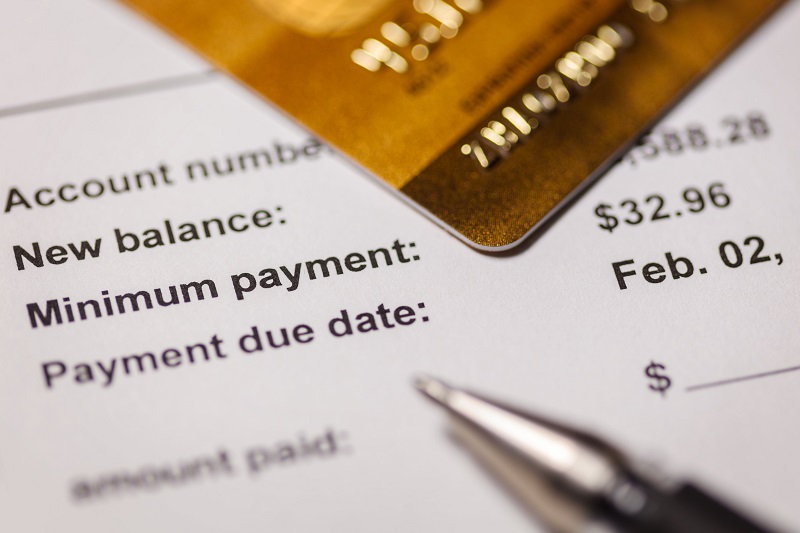If you are searching for an easy solution for credit card debt, you are not alone. Americans carried over $438.8 billion in credit card debt in March 2020 – just before the COVID-19 pandemic spiked causing record-high unemployment numbers. During a financial crisis, many people rely on credit cards to make ends meet, but when monthly bill pay becomes difficult, credit card payments usually are not a top priority.
As America tries to get back to a new normal, many people are struggling with higher debt and less money to pay it with. So, what can you do when credit card debt becomes overwhelming? Credit counseling is a great, free resource to help consumers come up with a plan to manage your money. However, looking to debt settlement for a quick fix is a popular route for American consumers. In 2018, more than 900,000 were resolved through debt settlement.
What does it mean to settle your credit card debt? You settle your account by paying a negotiated amount to the creditor that is less than the balance owed. Usually, the settlement amount is paid as a lump sum or in a few payments over a short period. In exchange for this payment, the creditor agrees to consider the account paid in full and abstain from any attempts to collect. The remaining balance is forgiven.
Sound too good to be true? Wondering what the catch is? Debt settlement can be the best debt relief option for some consumers, but it is not without risk. Debt settlement can have long-term consequences that may not be worth the reward of getting out of debt quickly. To help you decide if debt settlement is an option for you, here are a few pros and cons to consider.
1. PRO: You may be able to pay less than you owe
This is especially true if you have access to the funds needed to make a large payment. You could pay a fraction of your balance with a lump sum payment. Credit card providers want their money. They cannot simply take your property or garnish your wages to get paid because credit card debt is unsecured. Rather, credit card companies must turn to the courts to pursue payment on a defaulted account which can be costly and unproductive if the consumer ultimately files bankruptcy. Therefore, some credit card companies will settle accounts that meet certain criteria because it is the better, less expensive option for them to get paid.
2. CON: Paying less than you owe will drop your credit score
Though your creditor may agree to accept less than you owe as full payment on your account, the settlement will reflect on your credit report long after the account is closed. Despite paying the negotiated settlement, the fact that you paid less than what you owed will negatively impact your credit score for up to seven years. This can impact your ability to qualify for new credit cards, car loans, mortgages, and your credit score can even impact your housing and employment opportunities.
3. CON: Your creditors could turn you over to collections or sue you for the full balance
If you stop making payments on your credit cards, your creditors can turn your account over to a collection agency and/or file suit against you for default. This can lead to annoying calls from bill collectors, mailed collection notices, or a civil action requiring you to hire an attorney, appear in court, and incur additional costs. Some debt settlement companies will advise you to stop making payments, claiming that they can only settle your debt once your account is in default. However, while it may be true that creditors are more likely to settle a defaulted account, failure to make timely payments on your account will increase any outstanding balance you have with late fees and additional penalties. Remaining in communication with your creditors and letting them know immediately of any financial strain that may impact your ability to make timely payments may save you from late fees or any collection actions. Your creditors want to be paid and can often delay your payment due date, temporarily lower your payments, or work with you to make your payments more manageable.
4. CON: Every dollar forgiven is considered taxable income
This is the most overlooked factor for consumers who choose debt settlement. You may save money now with a negotiated settlement, but in the long run, you may still end up paying for it. If more than six hundred dollars is forgiven through debt settlement in one year, you will be required to pay taxes on that amount. In other words, the IRS considers forgiven debt from your creditors to be more money in your pocket or taxable income. Depending on how much debt is forgiven in one year and where you fall in your regular income, this could impact which tax bracket you fall into and could result in much more tax liability than you are prepared to pay. Before agreeing to any debt settlement, you should consult a tax attorney or your financial advisor to determine the impact on your tax liability.
5. PRO: You can get out of debt quicker
Because debt settlement means paying less than you owe, it can get you out of debt quicker than if you continued making your scheduled payments on the full balance and accruing interest in every billing cycle. If you come into a large amount of money through an inheritance or by taking out a personal or consolidation loan, you may be able to make lump sum payments for significantly less than what you owe to settle any outstanding credit card debt you have. This will save you money by reducing the amount you pay and stopping the interest that would accrue over time.
As with any financial decision, it is important to research your options and understand how the decisions you make today will affect your finances now and in the future.


